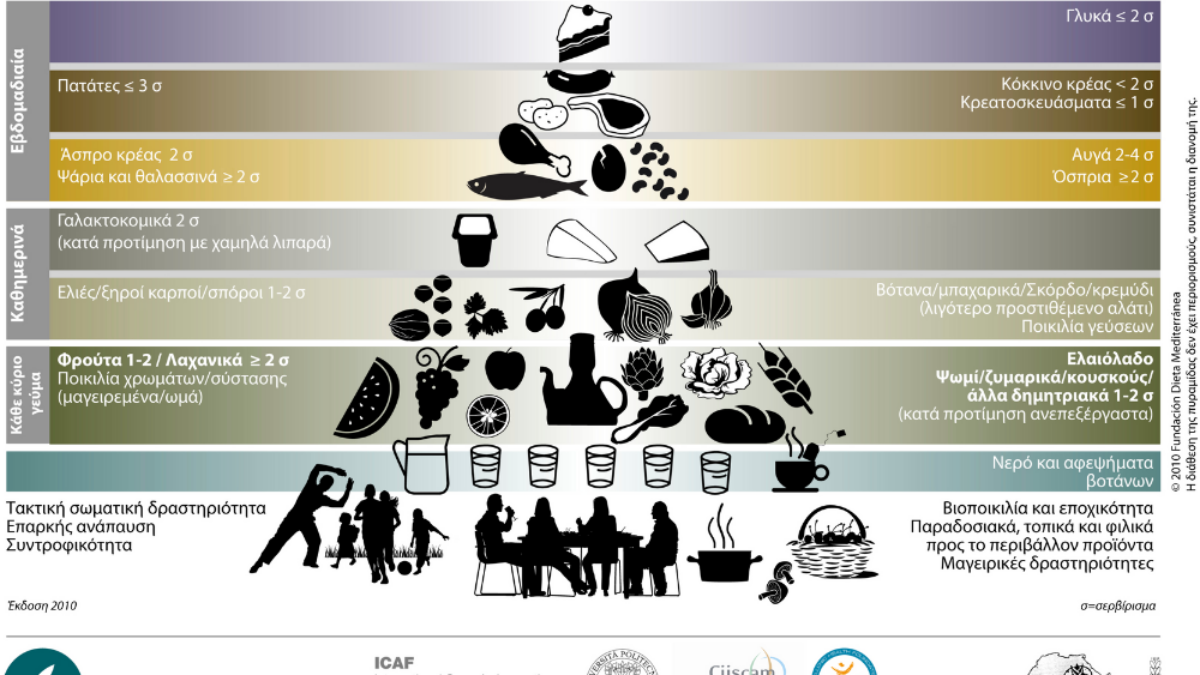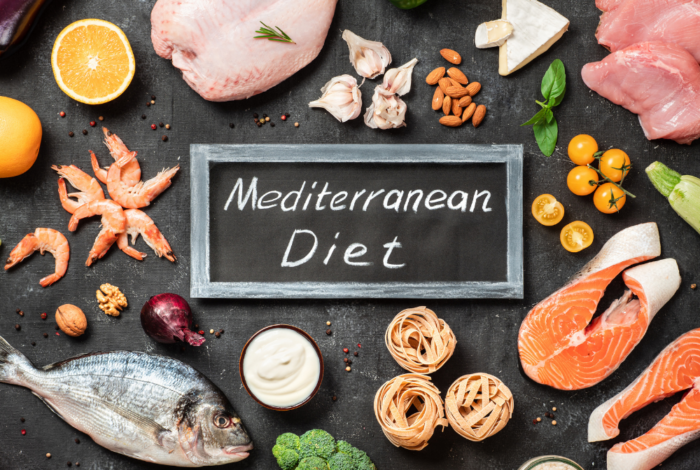The main features of the Mediterranean diet have been schematically presented in a diet pyramid, known as the Mediterranean Diet Pyramid.
This pyramid reflects the traditional dietary habits of the Mediterranean countries, including Greece.
The base of the Mediterranean pyramid includes foods recommended for daily consumption and the tip lists foods recommended to be eaten rarely, with other foods distributed over the intermediate levels of the pyramid. As such, the Mediterranean Diet Pyramid provides information on both the indicated frequency with which certain food groups should be consumed (daily, weekly or monthly) and on the recommended number of servings.
The new Mediterranean Diet Pyramid developed by the international Mediterranean Diet Foundation (Fundación Dieta Mediterránea) in 2010 makes the following recommendations: [i]
✔ Every main meal should include these basic food groups: cereals (ideally whole grain), fruits, vegetables, and olive oil as the main form of dietary fat.
✔On a daily basis, it is preferable to eat fruits and vegetables, olives, nuts, seeds, herbs, spices and dairy products.
✔Legumes, fish and seafood, poultry, eggs and, in limited quantities, red meat should be consumed on a weekly basis. Red meat in particular should not be consumed frequently; fewer than two servings per week, and preferably lean cuts. Similarly, consumption of processed meat should be limited, with one serving per week at most. Both red meat and processed meats should be served as a side dish to the main meal and not as the main component of a particular dish, as is common in the Western diet.
✔ Consumption of sweets should be limited. Sweets and processed foods in general that are rich in simple sugars, such as desserts, packaged bakery products (e.g. cakes, croissants), soft drinks, energy drinks, etc., are at the top of the pyramid, indicating the need to limit their consumption.
The Mediterranean Diet Pyramid does not prescribe precise amounts of foods that should be consumed, but rather focuses on the size of each serving. According to these recommendations, serving size should be based on moderation and reflects the individual’s energy requirements. In other words, servings should be tailored to the individual.
Lastly, the new Mediterranean pyramid also stresses the importance of sufficient hydration with water, regular physical activity, selecting locally sourced, season’s products and conviviality during meals. These specific features highlight the fact that the Mediterranean diet is not just a model for a balanced diet, but a holistic way of life that promotes good health along with social cohesion and environmental responsibility.

✖









